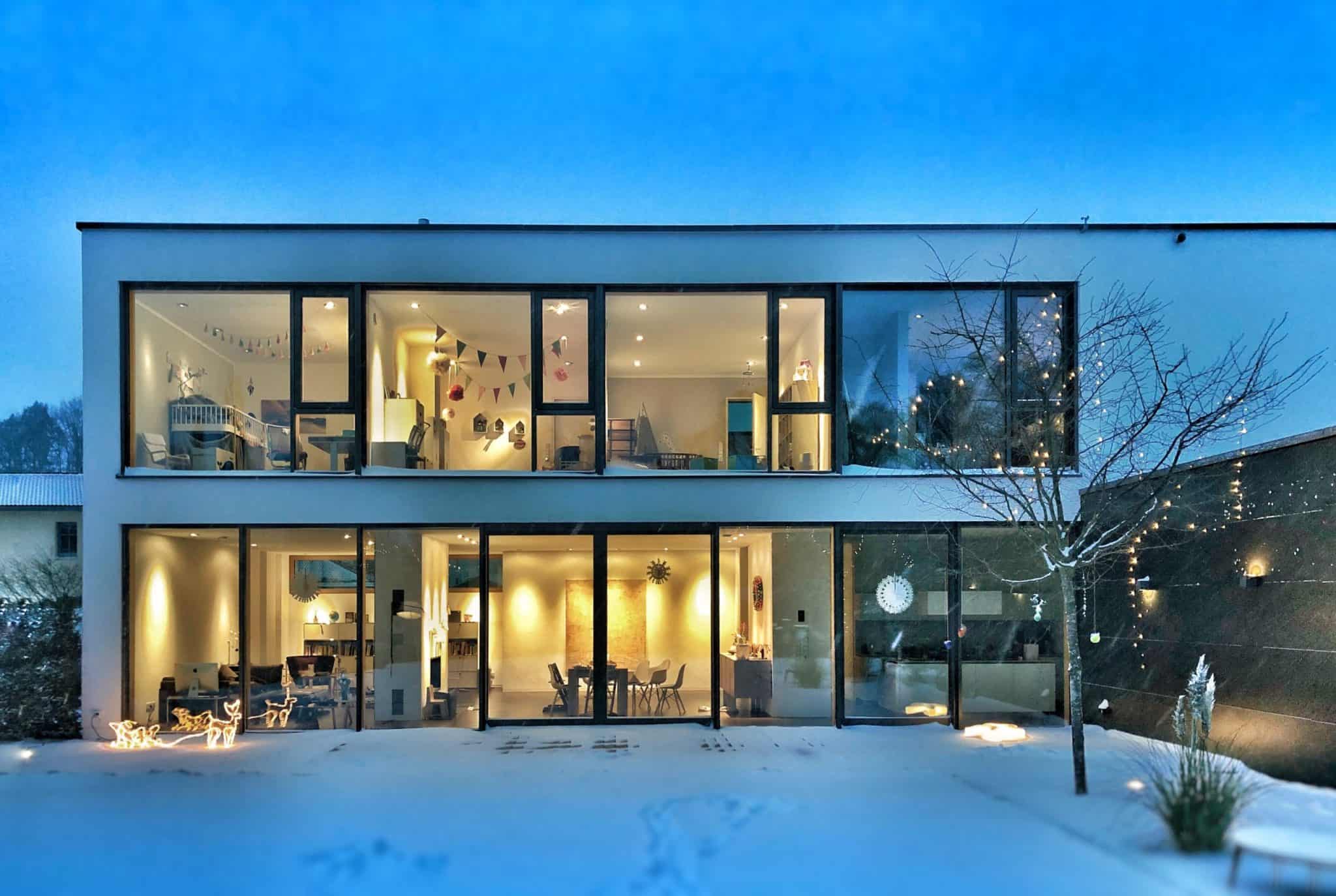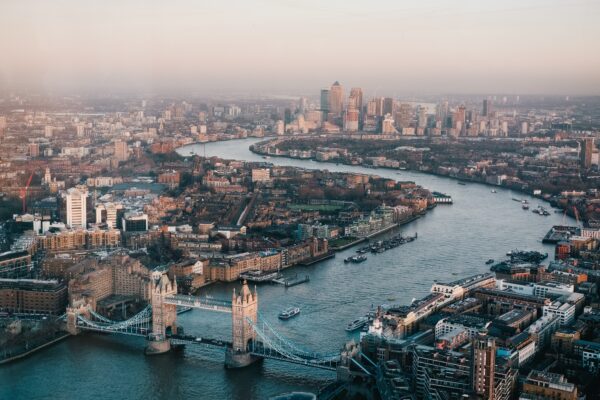Will House Prices Go Down In 2021? | IFG – IslamicFinanceGuru

7 min read
Published:
Updated:

Haider Saleem
It’s been a crazy few months in the housing market. No one could have predicted the frenzy we have seen during this pandemic. However, with some significant political, economic and health developments incoming, many people are wondering how this will reflect in house prices in the future.
In this article, we’ll discuss the following issues:
- House prices now
- Supply including housebuilding
- The high street
- Stamp duty holiday
- Lifestyle changes
Although we can’t predict what will happen, we believe these factors are worth considering when making an assessment.
House prices now
Let’s take a look at what’s happening right now, and we’ll work from there.
As of November 2020, the average house price in the UK is £249,633 and risen by 7.6% compared to the previous year, according to the latest data from the Land Registry.
The average price of a home in London was up by 9.7% in the year, to a record of £514,000. This was the first time it reached over the £500k mark.
There’s been an increase in a number of home worth £1+ mill. There are now 563,240 homes worth more than £1 million in Britain according to The Times. Most of these properties are outside of London, just 6,657 were in the capital. In 2020, these majority of these property millionaires came from:
- South-East of England (13,972),
- London (6,657),
- East of England (6,595),
- South-West (5,549).
So, at the moment, house prices are going up across the UK to record levels. What were the reasons, and will they continue to play a part 2021? Let’s take a look.
Supply
Now we know prices have increased over the course of the pandemic, how has supply been affected and what are the issues?
Let’s compare the first two weeks of 2021 to 2020.
There’s been a decrease in homes in the UK market in 2021 – meaning there are fewer people selling, leaving a smaller pool of options for potential buyers.
Zoopla said there was a 12% drop in homes in the first two weeks of 2021 compared to last year. This is also reflected in the number of instructors that solicitors have taken on – far less than the same time as las year. Zoopla also says this is keeping prices high.
London was the only region where there was an increase in listings in this time period.
Housebuilding
Housebuilding is a substantive issue that will continue to feature this year in the news and through the introduction of government policies, such as extending permitted development rights discussed below.
The government has a target of building 300k homes a year by mid-2020s. However, over the past 10 years, they’ve only hit 118,100 a year. Furthermore, the population has grown by over 4 million.
According to Savills, there is a strong link between housing delivery and affordability. The areas that aren’t meeting demand are contributing to homes becoming less affordable.
Another major housebuilding issue has been the controversy over the housebuilding algorithm that Tories revolted on – which saw their political heartlands take a disproportionate increase in construction.
A major government U-turn has now meant urban areas will take on 35% more homes than under existing targets. The new plans will see 131,500 homes delivered 20 cities each year, making up 44% of the national total. The current target for those cities is 97,000 homes.
Prices in these areas may be affected as the government pushes to meet its target, prioritising these cities.
Finally, there’s been shortages in construction materials and increase in prices due to challenges of the pandemic, as reported in the Guardian. Although it’s not had an effect yet, it may very well in the future.
So firstly, be on the lookout of areas that are not meeting supply needs. Secondly, be aware of areas that need to or will undergo go development due to the construction issues mentioned above.
What about the high streets? This has a strong link to housebuilding issues we just discussed.
The High Street
Way before Covid-19, the high street was suffering. We all know why.
Housing Secretary Robert Jenrick said: “it is too soon to know for certain the scale of the long-term impact.”
However, he did say it’s “very likely to present a generational challenge and opportunity to repurpose more commercial centres, offices and retail spaces into housing and mixed-use”.
The goes in line with the government permitted development scheme. First introduced in 2013, the scheme allows developers to convert offices into flats without planning permission.
The government is proposing to extend development rights. This is to allow more types of premises to benefit bypass normal planning procedures and be turned into homes. This includes shops and industrial premises e.g. former factories.
It’s facing some opposition. If allowed, clearly this will be another opportunity to build homes on the high street, increasing supply. The public consultation on these proposals closed recently.
A changing high street and government initiatives in 2021 may therefore be another factor to ‘pent-up’ demand. At IFG we are very bullish about the “gentrification” of high streets. Where before you had William Hill and Debenhams, now you have a suite of plush apartments and a upmarket coffee shop downstairs.
Stamp Duty Land Tax Holiday
This is probably one of the most crucial factors. Although there’s no consensus on how it has had a direct effect on prices, many people have purchased a house due to the SDLT holiday.
The SDLT holiday was introduced in July 2020 and is set to end on 31st March 2021. We do not know if this is going to be extended yet.
It was created to be a temporary relief to stimulate market activity and support jobs that rely on the property market.
Since the SDLT holiday was announced, house prices have increased by £14,692 according to the ONS.
The gain has far trumped the average saving of £4,500 from the tax cut.
In other words, because house prices have increased so much, the saves from the tax cut are insufficient. This is great for sellers.
However, buyers still believe they have benefited from this holiday. There’s certainly been an influx of buys as a direct result of the holiday. Although there is no data to prove this, data from HMRC does show that monthly property transactions were nearly 32% higher in December 2020 compared to the year before – the busiest December since 2006.
However, overall, 2020 ended the year 11% down compared to 2019. This was a 9-year low in annual transactions.
The 2021 Budget will take place on Wednesday 3 March 2021. It seems that only then we’ll know for sure how the government will move forward with the holiday.
Many people are scared that they will face a hefty bill if they miss the holiday. If sales fall through, they will be left with legal fees and no completed transaction.
Lots of ideas have been thrown about, including fazing and tapering the relief, extending the date, maintain the holiday permanently or allowing those who have begun their transaction for to keep the benefit of the holiday.
What might be best for now – and the most likely scenario in my opinion – is for buyers and sellers to compromise on the price to cover the cost of the tax post-March 31. I believe this would much preferable than lose the opportunity to buy or sell.
The key here is to look out for what the government decides to do with the holiday at the next budget.
Lifestyle changes
Some of us haven’t been in the office since the beginning of the pandemic. Some business are now completely remote. So why would you need that expansive flat in London?
Power has shifted (although I’m not saying how much). Professionals will no longer be willing to pay extortionate rent if they can WFH. Most people will much rather live a commutable distance, in a nicer house, if they only need to be in the office a few days a week.
Lifestyle factors were certainly a factor for the demands in 2020, along with the SDLT holiday.
Conclusion
Although we are not sure how the market will react in 2021, The factors discussed above, along with others will pay a pivotal role in house prices this year.
There are clear differences in which areas are feeling a boom and which aren’t as much.
The crucial one to look out for is what the government decides to do with the SDLT holiday. Furthermore, they are keen on reaching their housebuilding targets which may mean an introduction of new policies to help them achieve this.
Bottom line from us is that we fully expect there to be absolute bargains available particularly on auction due to distressed sales, but overall, we expect house prices to stay stable due to the fundamental shortage in housing, government policies, and because people would much rather sit on a house and wait for prices to rise rather than sell too cheaply.
If you do decide to purchase a house, be sure to check out our IFG Mortgage Calculator.
As always, if you enjoyed this article, you can follow me on Twitter or LinkedIn.



